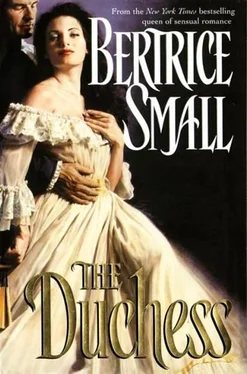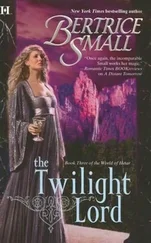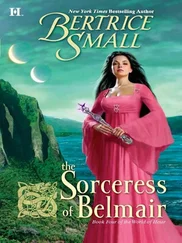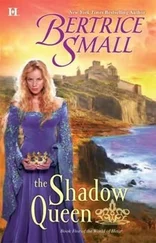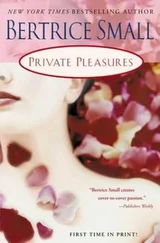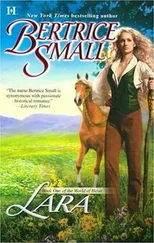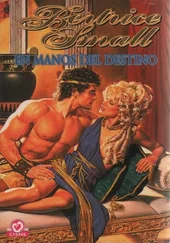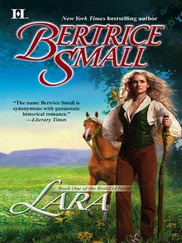Marker served tea with his staff of footmen as if they did it all the time with the Prince of Wales as the guest of the house. At six o'clock they set off for Vauxhall where, Prinny said, they would meet with the Countess di Lince. Prinny had taken a fancy to the elegant older woman.
Vauxhall was a marvelous pleasure garden that had opened in the year 1661, following King Charles II’s restoration. At first it could only be reached from the water. Located north of Kensington Lane, it now had another entrance in addition to its original entry to the west. The admission was currently two shillings, sixpence. Its popularity had survived for over one hundred thirty-five years because of the ever-changing variety of the exciting programs it offered the public, and of course, its five graveled promenades.
Each walk was tree- and bush-lined. The Grand Walk extended nine hundred feet from the entrance. It was thirty feet wide, and bordered with elm trees. The South Walk ran parallel to it, and was distinguished by three quite realistic archways with paintings of the ruins of the ancient city of Palmyra. Many who saw them believed them to be real. On gala nights the ruins were replaced by a Gothic Temple with an artificial fountain in its center. The South Walk was the same length and width as the Grand Walk.
To the left of the Grand Walk was the Hermit's Walk. On its right was a wilderness; on its left was a rural downs. Also running parallel to the Grand Walk and the South Walk was the Dark, or Lovers' Walk. It was quite narrow, and clandestine lovers were its most frequent guests. And finally crossing the four walks was the fifth, known as the Grand Cross Walk. It cut through the center of the gardens. The portion between the Grand Walk and the South Walk that was bound by it was called The Grove.
It was a most fashionable place in which to promenade, or to meet one's lover. This evening a concert was being held in The Grove, featuring the music of Mr. Handel and Mr. Haydn. Prinny and his party were comfortably ensconced in a supper box, which was next to The Grove. From there they could comfortably listen to the music while they were treated to an outrageously expensive supper of tiny chickens, paper-thin slices of ham and beef, pastry, and wines. The supper box was decorated with paintings by Francis Hayman. In their box the painting visualized a country scene in which simple folk were dancing about a maypole that had been set in the center of a green which was surrounded by picturesque thatched cottages.
At nine o'clock a bell was rung to indicate the famed Cascade was about to begin. An intermission was called for the concert. As it only lasted for fifteen minutes each night, and was constantly changed, they hurried from their supper box to see it. Tonight they viewed snowy peaked mountains from which a great waterfall tumbled over rocks into a frothy pool below. This was followed by a display of fireworks, and then they returned to their box to enjoy the rest of their concert.
"I ain't never seen anything that grand," Honor whispered to her mistress. It was not unusual that a servant be included in such an outing. The contessa had an elderly servant named Anna with her as well. Respectable women in the company of gentlemen not their husbands frequently traveled with a female servant.
"How long will you be in London, Your Grace?" the Contessa di Lince asked Allegra.
"We shall return home on Thursday," was the reply. "I must stop at my father's house on the way to Hunter's Lair. My stepmother is expecting a baby any day now."
"Is she?" The contessa looked a bit surprised. "Your father had other children?"
"I had a brother, James Lucian," Allegra said. "He was murdered in Paris during the Terror. He had gone there to marry a young lady. She and her family were arrested by the authorities. My brother would not leave her to die alone. He was very brave." Tears welled up in her eyes. "If my child is a son, perhaps I shall name him for my brother."
"You are expecting a baby?" the contessa said softly.
"Yes," Allegra confided. "That is why I must hurry home. I only came up to London to confirm my suspicions, and Lady Bellingham's physician, Doctor Bradford, has done just that. I am so happy, and my husband will be happy, too. We want a large family."
"Do you? I, myself, have never really enjoyed children, but now that my husband is dead, I regret what I have missed," the contessa said frankly. Then she turned to Prinny, smiling. "I hope we shall play cards again, Your Highness. I did so enjoy last evening."
"Indeed, madame, as I did," the prince responded. "And you were quite a lucky partner for me." He lowered his voice slightly. "My luck is not always as good as it was last night."
"I am at your service, Your Highness," the contessa said.
"I am happy to hear it, madame," Prinny replied, and his glance went to her décolletage. "Very happy, madame," he murmured.
George Brummell, a clever young man, had noted when the contessa turned away from Allegra, her eyes had been filled with tears. Curious, he thought, and then determined he would learn the reason why. As they left The Grove to promenade back to where their carriages awaited them, he spoke in low tones in flawless Italian to the contessa.
"Who are you really, madame? You are English, you say by birth. Who was your sire?"
She looked at him with bleak eyes, and then she murmured so low that only he could hear. "I was the youngest daughter of the Duke of Arley, Mr. Brummell. Please, I beg of you to keep my secret."
Brummell could not have been more surprised than he now was by her revelation. "You are the duchess's mother:"
"I am. I never expected to see England again, but that the French ravaged my villa outside of Roma. My husband died two years ago, and we had no children of our own. I will go back one day when the French have gone, of course, but for now I had nowhere else to come but England. I am financially safe for Giancarlo placed his funds with a family of bankers named Kira. who have branches all over Europe. I thought it was unlikely that I should meet anyone who once knew me. Even the prince does not remember me, and we met when he was a young boy. He attempted to put his hand down my dress even then. I slapped him. I will not slap him if he again attempts it." She gave him a rueful shrug. "I need friends, you understand."
He nodded. "Seeing her now, do you regret your actions, madame?" Brummell asked the contessa.
"No," she shrugged. "I fear I do not. I did not love my first husband. I did love my second. I wanted no one, nothing to come between us. I was fortunate he felt the same way. It is odd, however, to see my daughter grown. To know I am to be a grandmother. To realize my sister has taken my place. Still, I have lived my life the way I wanted to live it. Don't most people if they can? Yet, it saddens me that I have lost my only son. But how gallant he was, wasn't he? And as for my only surviving child, she is a lovely young woman, with beautiful manners, and an obvious intelligence. She has found love the first time, and I wish that she may always have it."
"You will not tell her who you are?" Brummell said.
"Of course not," the contessa explained. "While I did not want her, I nonetheless bore her, making her father happy, who for all my own feelings, is a good man. Even if she knew my identity, sir, all it could do would be to upset her. I am nothing to her, nor do I wish to be at this late date. Nonetheless, I am pleased to see what a fine young woman she has turned out to be."
"You are a realist, madame," Brummell said in English.
"Yes," she responded in the same language. "I have always known when to cut my losses. Now, if I can but teach that to your prince," she finished with a smile.
Читать дальше
